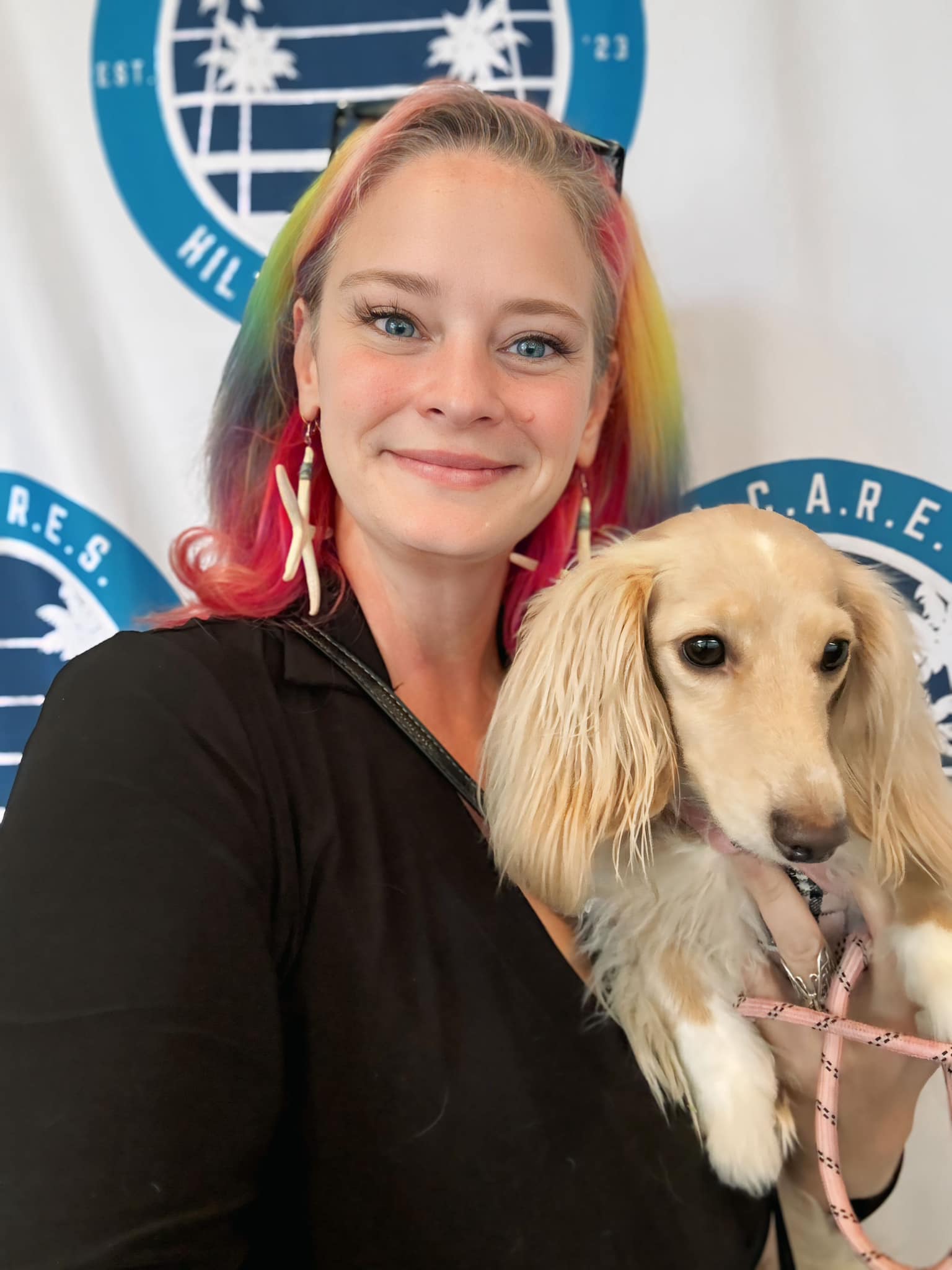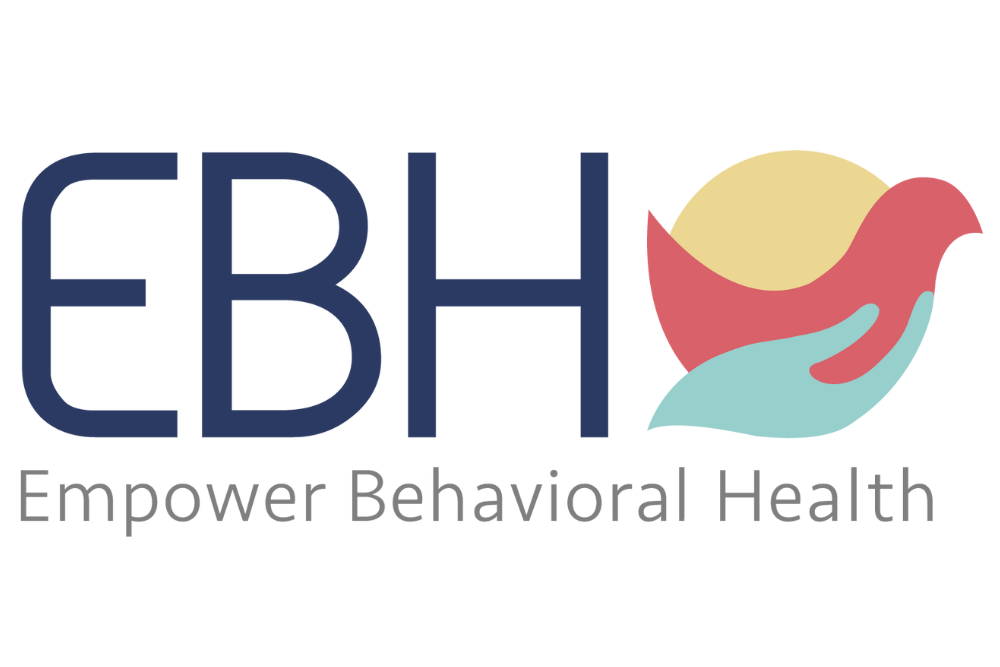1st Regional Conference El Paso, TX
There is still time to register this week, see below for how. We encourage everyone to register by Friday night to make Saturday check-in faster. We will have on-site registration.

Date: November 16, 2024
Address: 6650 Continental Drive, El Paso, TX 79925
There are several hotel options within walking distance
This website will be updated as information becomes available
General Information - Updated 11/1/2024
TxABA is busy planning for our first regional conference in El Paso, TX. Several years ago at the annual TxABA business meeting (now referred to as the State of the Organization), there was a call to bring TxABA to El Paso. That planted a seed that is growing into TxABA's first regional conference. TxABA is excited to partner with local behavior analysts serving on the Regional Conference El Paso Committee to bring a one-day conference to the behavior analytic community of El Paso and surrounding areas. Please see below for the general conference schedule and individual presentations.
There are two tracks that are offered, named for their intended audience. Anyone may register to attend either track but you will be required to attend the track that you registered for. One track offers 6 BACB CEUs and is geared towards BCaBAs, BCBAs, and BCBA-Ds. The second track is not eligible for CEUs as it is geared towards RBTs, students, and paraprofessionals. This marks the 1st track dedicated to RBTs & Students at a TxABA conference. We hope this track will be successful in supporting RBTs, students, paraprofessionals, and other related professionals in their local community and help them connect with experts in our field.
To guarantee your spot for lunch, please register before 11/5/2024. Lunch is a great time to connect with the speakers and other attendees. Due to when the catering order is due, we cannot guarantee lunch for anyone registering after November 5, 2024. After November 5th, lunch will be available on a first-come, first-served basis until the catering order limit is reached.
The regional conference is in-person only and has limited seating for each track.
Sponsors & Exhibitors
Sponsors & Exhibitors
Please reach out directly to inquire about remaining opportunities
sponsors.exhibitors@txaba.org
COVID-19 and Sick Policy
TxABA encourages all those who can to be vaccinated against COVID-19 and to follow CDC recommendations. TxABA encourages everyone to follow CDC guidelines on masking at the time of the conference. TxABA or the Starlight Event Center may require masking at the time of the event depending on CDC recommendations. We will notify those who have already registered for the conference and post on our website any changes.
We encourage everyone attending in person to take a COVID test before attending the conference. We appreciate everyone's efforts to reduce the likelihood of unknowingly exposing fellow attendees to COVID-19 and other illnesses.
How to Register & Make a Payment
Click on the person icon in the top right corner to sign into your TxABA Account or create a free TxABA Account.
Once logged into your TxABA Account, click on Register on the top of the webpage.
Read the instructions on the Register webpage then select billing items to place in your cart
Accept the Terms of Service (link to webpage to read) then select Submit to add the items to your cart.
Read the instructions on the cart page and review the items in your cart. The total on the cart page is what you will be charged.
To pay with a card via Stripe, select "pay with card" when checking out.
To pay by check please select "pay with check" when checking out, read the instructions, confirm that you will pay by check (you cannot pay-by-card once you have confirmed that you will pay by check), print the invoice, and mail the check and invoice within 30 days and at least two weeks prior to the conference. Please make all checks payable to "Texas Association for Behavior Analysis"and mail the invoice with the check to Texas Association for Behavior Analysis, PO Box 841, Colleyville, TX 76034-0841.
Please note that with the updated system you cannot pay from your profile, the invoice will not be created until payment is made by card or the pay-by-check option is selected. If you leave an item in your cart without paying, please return to your cart page via the register page or view the cart button on your profile. Carts will automatically empty.
TxABA does not provide purchase orders, if you need to print an invoice to submit before payment can be made then use the Group/Other Registration option to print an invoice before confirming your payment.
If you need a W9 or have a specific vendor packet, please email txaba@txaba.org.
Please click her to review the Terms of Service regarding transfers, cancellations, and CEU policy.
Registration Information
Registration for the 1st Regional Conference in El Paso will be split into two periods: regular registration and late/onsite registration. There are different prices for each track based on membership status. Anyone may attend either track, the name of the track indicates the intended audience for those presentations.
To guarantee your spot for lunch, please register before 11/5/2024. Lunch is a great time for discussions with the speakers and other attendees. Due to when the catering order is due, we cannot guarantee lunch for anyone registering after November 5, 2024. After November 5th, lunch will be available on a first-come, first-served basis until the catering order limit is reached.
Registration for the BCBA Track includes BACB CEUs for presentations attended, please ensure your BCBA/BCBA-D/BCaBA certificate number is in your TxABA Account.
The RBT/Student Track does NOT offer BACB CEUs.
Please note for Member Conference Registration Prices to be visible on the register page, you need to have already purchased your membership (i.e., you need to purchase membership separately first then go to the register page for the corresponding member regional conference registration to be available for purchase).Please visit here for membership information
Group Registration: If you would like to register a group of 5 or more, please read this document, fill out the linked excel sheet, and email it to txaba@txaba.org. Due to lunch being included in the registration price, we are not able to offer a discount for larger group registrations. The group registration page is for the annual conference and will not work for the regional conference.
This table was updated on 11/1/2024.
| BCBA Track w/ 6 BACB CEUs | |||
| Registration Period | Student/RBT Member | Affiliate/Voting Member | Non-Member |
| Regular 9/24/2024 to 11/5/2024 Lunch Provided | $140 | $199 | $249 |
| Late 11/6/2024 to 11/16/2024 Lunch on first-come, first-served basis until limit reached | $140 | $199 | $249 |
| RBT/Student Track (NO CEUs) | |
| Registration Period | Everyone |
| Regular 9/24/2024 to 11/5/2024 Lunch Provided | $40 |
| Late 11/6/2024 to 11/16/2024 Lunch on first-come, first-served basis until limit reached | $40 |
Regional Conference in El Paso, TX Schedule Overview
Presenters for BCBA Track with BACB CEUs: Dr. Samantha Bergmann, Dr. Andrew Gardner, Dr. Amanda Kelly, and Dr. Ben Seifert
Presenters for RBT/Student Track (NO CEUs): Dr. Andrew Gardner and Dr. Janet Enriquez Sanchez
Please note that the scheduled times are approximate and may be slightly adjusted as we get closer to the event. Schedule Updated 8/27/2024.
| November 16, 2024 | |
| 8:00 am - 9:00 am | Registration, Badge Pick-Up, and Merchandise Table Open |
| Exhibit Tables & Coffee | |
| 9:00 am - 9:10 am | Welcome |
| 9:15 am - 12:30 pm | BCBA Track with BACB CEUs available - 2 x 90 min presentations |
| RBT/Student Track with NO CEUs available - 3 hr workshop | |
| 12:45 pm - 2:15 pm | Lunch included with registration and exhibit table |
| Exhibit Tables | |
| 2:30 pm - 5:45 pm | BCBA Track with BACB CEUs available - 2 x 90 min presentations |
| RBT/Student Track with NO CEUs available - 3 hr workshop | |
| 5:45 pm | Exhibit Tables |
| TBD | Social event in evening (off-site) |
1st Regional Conference El Paso, TX
BCBA Track Presentations
BCBA Track w/ BACB CEUs
Saturday, November 16, 2024 | 9:15 am - 10:45 am | 1.5 BACB CEUs

Ben Seifert
PhD, BCBA-D, LBA
Ben is a doctoral-level board certified behavior analyst who completed his PhD in Special Education from Ball State University, earned his M.A.’s in ABA and Educational Psychology from Ball State University, and his B.A. in Psychology from Purdue University. He is an instructor for the ABA program at Ball State University and is the Principal and Founder of Collaborate ABA. Ben has been working in the field of ABA since 2003 and has been fortunate to work under the guidance of Dr. Susan Wilczynski, Dr. Carl Sundberg, Dr. Patrick McGreevy, Dr. Mark Sundberg, Dr. John Esch, Dr. Barbera Esch, and Dr. Peter Gerhardt. He has experience working with all ages in home programs, schools, and center-based therapy. Ben works with individuals of all ages; however, he specializes in working with adolescents and adults.
What's Next? Meaningful Transitions into Adulthood
Everyone is capable of living and working in the community with the proper supports. Dr. Seifert will provide an overview and discussion of current best ABA practices to support adolescents and young adults with autism in educational, employment, residential and community-based settings. Dr. Seifert will give a review of the Essential for Living (EFL) curriculum and help practitioners know when and how to use it. This will include an introduction to the EFL, the Necessary Nine, and the alternative method of speaking. Dr. Seifert will also discuss how to write appropriate behavior analytic goals using the EFL that can be used in all settings (and insurance will approve!).
During this presentation, participants will learn:
- What tools/assessments/curricula to use when teaching adolescents and adults with autism to help ensure greater access to their communities.
- How to write better critical instruction targets.
- How to work with their learners to find appropriate and meaningful jobs.
BCBA Track w/ BACB CEUs
Saturday, November 16, 2024 | 11:00 am - 12:30 pm | 1.5 BACB CEUs

Andrew Gardner
PhD, BCBA-D
Andrew W. Gardner, PhD, BCBA-D has been serving families of children with behavioral challenges over the past 25+ years across clinic, home, school, and public settings in both English and Spanish. Dr. Gardner completed his BA undergraduate degree and MS graduate training in Psychology/School Psychology at Utah State University, completed an internship through the Fred S. Keller School (CABAS), his PhD through the University of Iowa, a pre-doctoral internship at the Kennedy Krieger Institute, and a post-doctoral fellowship at the Johns Hopkins University School of Medicine. Dr. Gardner has also participated in various Maternal and Child Health Bureau funded Leadership Education in Neurodevelopmental and other Related Disabilities (LEND) programs and currently serves as the Training Director for the Arizona LEND program.
He is currently an Associate Professor at The University of Arizona in the Departments of Pediatrics and Psychiatry. Dr. Gardner supervises a Behavioral Pediatrics Clinic, participates with the clinical team through The Children's Postinfectious Autoimmune Encephalopathy (CPAE) Center of Excellence at the UA Steele Center in Pediatrics, as well as serves children and families at Children’s Clinics for Rehabilitative Services as a co-director for the Autism Center of Excellence. He has peer-reviewed publications and professional presentations in the areas of evidence-based practices, as well as in the assessment and treatment of childhood problem behavior. Dr. Gardner’s research interests include functional analytic assessment of childhood challenging behavior, qualities of attention in Parent Management Training (PMT), parenting and cross-cultural treatment acceptability, and therapeutic bio-behavioral strategies for challenging behavior for children with diverse diagnoses.
Severe Challenging Behavior: Tools for Assessment and Treatment
Functional assessment describes a broad range of procedures used to identify the function of challenging behavior (Vollmer & Northup, 1996). A thorough functional assessment includes operationally defining behavior, collecting data to form a hypothesis (i.e., observations, interviews, and caregiver reports), then, if necessary, test the hypothesis via a functional analysis. Behavior scientists have developed a number of methods to utilize for the appropriate assessment of challenging behavior. The current presentation will provide various examples of assessment methods including indirect and direct, with a focus on advantages and disadvantages (Iwata 1982/1994; Steege & Watson, 2008; Vollmer & Northup, 1996).
At the end of this presentation, attendees will be able to understand the functions of challenging behavior:
- Understand the Functional Behavior Assessment Continuum: indirect to direct applications.
- Learn about Functional Analysis in applied settings.
- Learn to identify variables to consider when choosing between assessment methods.
BCBA Track w/ BACB CEUs
Saturday, November 16, 2024 | 2:30 pm - 4:00 pm | 1.5 BACB CEUs

Samantha Bergmann
PhD, BCBA-D, LBA
Dr. Samantha Bergmann is currently an assistant professor in the Department of Behavior Analysis at the University of North Texas. She co-directs the Training and Research: Autism Intervention Laboratory housed in the UNT Kristin Farmer Autism Center and co-directs a peer-mentoring program in Housing and Residential Life called UNT Collaborative Action for the Neurodiverse. Her research interests include applied and transitional questions related to procedural integrity, instructional efficacy and efficiency, stimulus control, and verbal behavior. Dr. Bergmann serves on the editorial boards for the Journal of Applied Behavior Analysis and Behavior Analysis in Practice and is an Associate Editor for The Analysis of Verbal Behavior. Dr. Bergmann has presented at state, regional, and national conferences and has published research in the Journal of Applied Behavior Analysis, Journal of the Experimental Analysis of Behavior, Behavior Analysis in Practice, The Analysis of Verbal Behavior, Psychological Record, the European Journal of Behavior Analysis, and Learning and Motivation.
Using Matrix Training to Teach Tacting to Children with Autism
Recombinative generalization is a particular type of generalization wherein learners respond to novel combinations of previously learned components. An example of recombinative generalization is a child who tacts “Elmo shirt” after learning to tact “Elmo cup” and “Elsa shirt.” Recombinative generalization can be facilitated in applied-behavior-analytic (ABA) intervention by incorporating matrix training. Matrix training is a teaching arrangement that involves systematically organizing components and combinations, teaching a subset of combinations, and probing for generalization to other combinations. This presentation will include an introduction on matrix training, examples of matrix training with autistic children in the literature, and suggestions for incorporating matrix training into ABA practice. Data from several recent and ongoing studies on matrix training to teach verbal behavior will be shared.
At the end of this presentation, attendees will be able to:
- Describe how to arrange components in matrix training to create combinations.
- Explain several ways to target components and combinations when using matrix training.
- Define recombinative generalization and provide an example.
- List several considerations for using matrix training in practice.
BCBA Track w/ BACB CEUs
Saturday, November 16, 2024 | 4:15 pm - 5:45 pm | 1.5 BACB CEUs

Amanda Kelly
PhD, BCBA-D, LBA
Dr. Amanda N. Kelly, also known as Behaviorbabe, is a distinguished Behavior Analyst who serves as the Director of Adult Programs at The Unumb Center for Neurodevelopment in Columbia, SC. With over two decades of experience in the field of ABA, Dr. Kelly is recognized for her work in advancing the field through real-life applications and ethical practices. She is an award-winning advocate who achieves meaningful and long-lasting change for countless children and adults. Her commitment to advancing the field and her innovative approach make her a sought-after voice in the ABA community. As a dynamic speaker and educator, Dr. Kelly continues to be a prominent and influential voice in this space.

Amy Foxman
PhD, BCBA, LBA
Dr. Amy Foxman is the Founder and President of Ability ABA, PLLC, and is a Board Certified and Licensed Behavior Analyst (BCBA) and certified Special and General Education Teacher. Throughout her career, Amy has worked extensively with individuals with autism and other disabilities, from early childhood to adult, in providing both direct and clinical consultant services in settings that include private clinics, early childhood centers, public and private schools, family and group homes, and hospitals. Amy enjoys using a compassionate and research-based approach to applied behavior analysis (ABA) as she partners with families and professionals to individualize programs for each individual’s success. Additionally, Amy was a reviewer for the recent publication of the University of North Carolina’s National Clearinghouse on Autism Evidence and Practice (NCAEP) report Evidence-Based Practices for Children, Youth, and Young Adults, and provides editing and content expertise in Special Education to Sage Publishing. She frequently presents at conferences and seminars. Amy received her Doctorate in Educational Psychology from the University of North Texas, Master of Education degree with concentrations in Severe/Low Incidence Disabilities and Behavior Analysis from the University of Washington, and graduated Summa Cum Laude and with Honors from the University of Pennsylvania.
Navigating Safety Preparedness - An Exploration of Assessment and Action
In this presentation, we will delve into the essential role of integrating safety preparedness for children and adults, with a specific focus on individuals with autism and developmental disabilities. The presenters will introduce an assessment tool they have developed to empower parents, caregivers, and professionals in their discussions and with the formulation of safety protocols. This tool comprises a thoughtfully crafted set of open-ended questions that cover critical areas, such as fire safety, water safety, wandering behavior, and in-school safety. We also will explore behavior analytic procedures for teaching critical safety skills for children and adults with autism.
At the end of this presentation, attendees will be able to:
- State at least one safety statistic related to children and adults with autism.
- Locate at least one assessment tool or resource to help identify safety concerns for individuals with autism.
- Describe one procedure for teaching a critical safety skill to an individual with autism or disability.
RBT/Student Track Workshops
RBT/Student Track
Saturday, November 16, 2024 | 9:15 am - 12:15 pm | No CEUs

Janet Sanchez Enriquez
PhD, BCBA-D, LBA
Janet Sanchez Enriquez, PhD, BCBA-D attended the University of North Carolina Charlotte as an OSEP scholar working under the mentorship of Dr. Rob Pennington. Her research interests include working alongside vulnerable and diverse populations promoting applied behavior analysis for teaching and learning through research and the development of culturally and linguistically diverse verbal behavior assessments and interventions. She is a founding member and Secretary of the non-profit the Mexican Organization of Practitioners of Applied Behavior Analysis (Organización Mexicana de Practicantes del Análisis Conductual Aplicado, serves on the Board of Directors for the World Behavior Analysis Day Alliance, sits on the Executive Council for the Texas Association of Behavior Analysis and was previously the Council for Exceptional Children’s Division on Autism Developmental Disabilities DEI Student Liaison.
Collaborating with Caregivers: Practical RBT Approaches to Enhance Verbal Behavior in Learners with Autism
This 3-hour workshop equips Registered Behavior Technicians (RBTs) with practical skills to support caregiver training and shape verbal behavior in learners with autism. Drawing on Skinner’s analysis of Verbal Behavior, participants will explore practical strategies for teaching the verbal operants, and identify how to guide caregivers in reinforcing communication skills. In addition to learning techniques for assessing verbal behavior functions, ensuring skill acquisition, and promoting generalization across settings, the workshop provides RBTs with practical tools for supporting families and improving communication.
At the end of this presentation, attendees will be able to:
- Identify effective parent/caregiver training modalities to support families with learners diagnosed with autism spectrum disorder (ASD).
- Analyze and assess the function of the verbal operants within the context of parent/caregiver training to facilitate communication development in learners with ASD.
- Apply research-supported approaches to shape verbal behavior, ensuring continued acquisition, maintenance, and generalization of skills across different settings.
- Develop practical strategies and recommendations for providing targeted caregiver training to support verbal behavior acquisition in learners with ASD.
RBT/Student Track
Saturday, November 16, 2024 | 2:30 pm - 5:30 pm | No CEUs

Andrew Gardner
PhD, BCBA-D
Andrew W. Gardner, PhD, BCBA-D has been serving families of children with behavioral challenges over the past 25+ years across clinic, home, school, and public settings in both English and Spanish. Dr. Gardner completed his BA undergraduate degree and MS graduate training in Psychology/School Psychology at Utah State University, completed an internship through the Fred S. Keller School (CABAS), his PhD through the University of Iowa, a pre-doctoral internship at the Kennedy Krieger Institute, and a post-doctoral fellowship at the Johns Hopkins University School of Medicine. Dr. Gardner has also participated in various Maternal and Child Health Bureau funded Leadership Education in Neurodevelopmental and other Related Disabilities (LEND) programs and currently serves as the Training Director for the Arizona LEND program.
He is currently an Associate Professor at The University of Arizona in the Departments of Pediatrics and Psychiatry. Dr. Gardner supervises a Behavioral Pediatrics Clinic, participates with the clinical team through The Children's Postinfectious Autoimmune Encephalopathy (CPAE) Center of Excellence at the UA Steele Center in Pediatrics, as well as serves children and families at Children’s Clinics for Rehabilitative Services as a co-director for the Autism Center of Excellence. He has peer-reviewed publications and professional presentations in the areas of evidence-based practices, as well as in the assessment and treatment of childhood problem behavior. Dr. Gardner’s research interests include functional analytic assessment of childhood challenging behavior, qualities of attention in Parent Management Training (PMT), parenting and cross-cultural treatment acceptability, and therapeutic bio-behavioral strategies for challenging behavior for children with diverse diagnoses.
Challenging Behavior and Function-Based Treatment Strategies
Challenging Behavior can be observed across most children we work with to diverse severity levels. Our field has empirically supported strategies to tailor to help us work with each of our child clients. The process of assessing the function of behavior can be complicated at times, but once identified, function-based treatment strategies (matched to function) can be implemented for behavior reduction and to increase appropriate behavior. The current workshop will cover the functions of behavior, function-based treatment strategies, as well as choice assessment methods. Variables to help professionals work with diverse parents will also be discussed.
At the end of this presentation, attendees will be able to:
- Understand and identify the four functions of behavior and diverse ways of assessing for function.
- Learn and describe behavioral strategies to address attention-maintained behavior, access to tangible items and preferred activities, escape from tasks/demands, and automatically maintained behavior.
- Describe and practice functional communication training (FCT) and understand the role it plays in working with our clients.
- Learn about idiosyncratic parent/family variables that might impact behavior in homes.
Future Annual Conference Dates
April 24-27, 2025 Hyatt Regency Dallas
April 9-12, 2026 Hyatt Regency San Antonio
April 22-25, 2027 Royal Sonesta, Houston, TX

